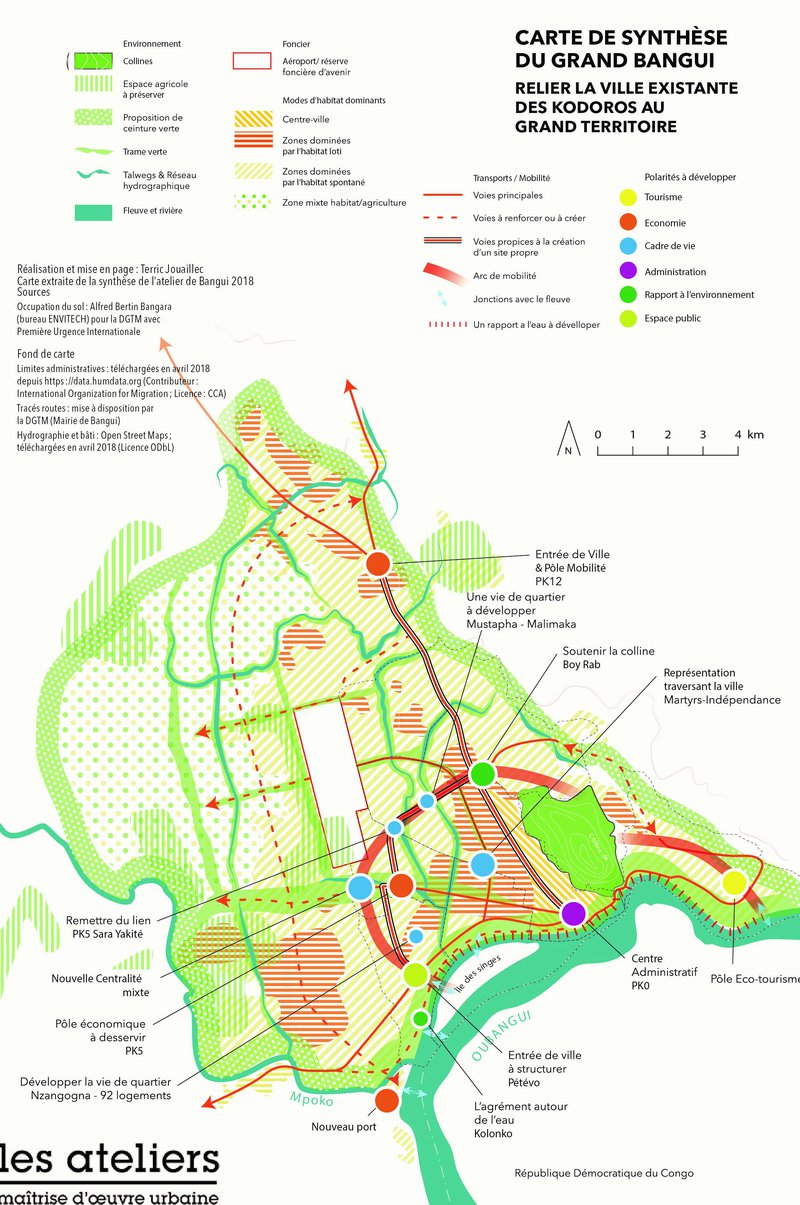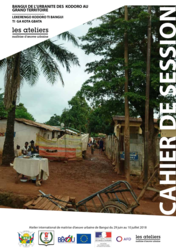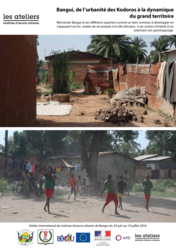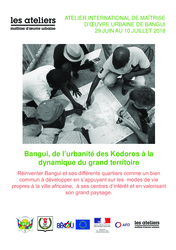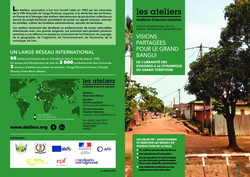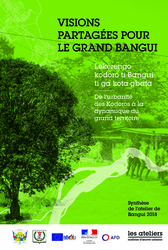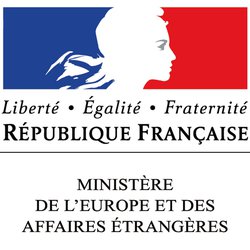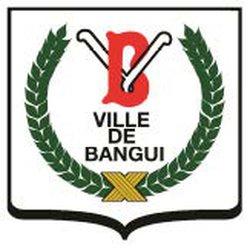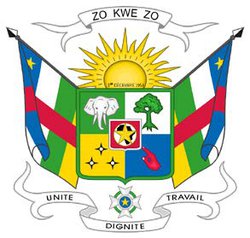From the Urbanity of the Kodoros to the Dynamics of the Greater Territory
At the invitation of the City Hall of Bangui and the Ministry of Urban Planning and Social Housing, and with the support of the Ministry of Foreign Affairs and the French Development Agency, the Ateliers are organizing an international urban planning workshop in Bangui, bringing together Central African and international urban planning experts to work with the municipality, ministries, and local actors in a forward-looking approach applied to the city of Bangui. Bangui, the capital of the Central African Republic, had an estimated population of 1.2 million in 2016.
The workshop aims to produce a collective vision of urban functions to be redeployed following the destruction of the social and urban fabric during conflicts in the Central African Republic. Participants will be asked to propose solutions that create the conditions for an urban organization supporting social cohesion and shared economic development.
An Adapted Format: 12 Participants, 10 Days
The workshop follows the original method of the Ateliers de Cergy, which brings together volunteer professionals from different countries and disciplines in Bangui for 10 days. After several days of familiarization with the territory and meetings with local stakeholders, participants will work in multidisciplinary teams to propose strategies and project ideas for Bangui. Professionals are accompanied by a local partner committee that will provide feedback and complement proposals during various exchange sessions.
Outline of the Subject
Several approaches and questions will need to be addressed to answer the central question: how to develop and formalize a shared vision for Bangui that can overcome community divisions and unite energies around a common and productive future.
The Polarities
The historical colonial center is now less decisive in urban functioning than the centralities that have emerged in the periphery, which are today the most vibrant and productive areas of the city.
Neighborhoods and Their Connections
Bangui is characterized by fragmented functioning, an assembly of “specialized” neighborhoods that are generally introverted and inward-looking. This situation, inherited from history, affects cohesion and the sense of belonging to a single city.
Linking Existing Centralities to the Greater Territory
It is essential to establish a link between the development of existing centralities and the greater urban territory. The natural expansion area of Bangui lies west of the PK12-Bimbo axis, behind Mpoko Airport. How can long-term territorial planning concerns be integrated into the development of existing peripheral centralities?
Seeking New Contributions and Representations of the Territory
The Urban Master Planning Workshop is an opportunity to create an association between individual dynamics and a collective dynamic aligned with the deeper movement of civil society. How can this shared vision of Bangui be formalized and expressed, transcending the opposition between the individual and the collective, and between different collectives? What other tools besides maps and plans can support this process?
Pilotes of Bangui Workshop:
Lamine Cassé, PhD in Geography, Senegal
Christophe Bayle, Architect-Urbanist, France
Vincent Bourjaillat, Engineer-Urbanist, France
This workshop is aimed at professionals of any age and nationality, practicing a profession or having more than 5 years of experience in urban planning. All disciplines are welcome: architects, sociologists, geographers, landscape architects, historians, engineers, economists, artists… Fluency in French is essential. Participants will be hosted in Bangui and will work in premises provided for the workshop.
Professional, French-speaking workshop. Duration: 10 days.
Discover all the workshop resources:
Subject Document
Context File
Session Notebook
Workshop Proposals Summary
staff
Pilotes :
Lamine Ousmanne Casse
Christophe Bayle
Vincent Bourjaillat
Assistants pilotes :
Abidjah Peguy Satchie
Terric Jouaillec
Associate expert :
Blandine Tchamou


